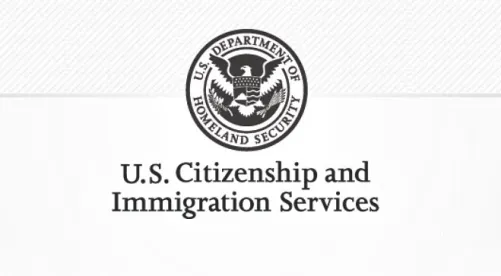Following the March 10, 2020, decision of the U.S. District Court for the District of Columbia in ITSERVE Alliance, Inc. v. Cissna, U.S. Citizenship and Immigration Service (USCIS) has agreed in a settlement to rescind the 2018 third-party worksites memorandum (PM-602-0157) in its entirety no later than October 13, 2020. USCIS also agreed that it would no longer apply the existing 1991 itinerary regulation to H-1B petitions until it is able to issue new rules on the topic. For employers of H-1B visa holders who work at client locations, this loosens the burdensome requirements for production of contracts that span the entire requested H-1B period.
Background
In 2018, USCIS issued a policy memorandum, which placed mandatory and onerous documentation requirements on employers that place H-1B workers at third-party client sites. In this memo, USCIS specifically requested detailed statements from end-user clients, copies of client contracts, and work itineraries to demonstrate that non-speculative assignments were available throughout the entire requested period.
Following the implementation of the memo, USCIS shortened the validity of many H-1B visas to less than the standard three-year period. Prior to this memo, USCIS almost uniformly granted H-1B visa petitions for the entire three-year maximum duration. The policy change created confusion and increased costs for companies, especially those in the information technology (IT) and consulting industries that regularly place employees at client sites.
In ITSERVE Alliance, the court struck down the itinerary requirement for employers, removed the requirement that the petitioning employer provide contracts that span the entire requested period of stay, and held that the recent USCIS practice of limiting the H-1B validity periods was arbitrary and capricious.
A New Look at the Employer-Employee Relationship
Under the 2018 third-party worksite memo that the new settlement agreement requires USCIS to rescind, USCIS determined that an H-1B employer could not guarantee an employer-employee relationship unless the employer and the end-client entered into a contract spanning the entirety of the three-year employment period requested on the H-1B petition. USCIS’ interpretation of employer-employee relationship in the memo was contrary to the plain language of the regulation and effectively forced businesses into a making a choice: enter into three-year contracts with clients or face shortened H-1B approvals for workers under such contracts. Much more burdensome, USCIS determined it could deny any H-1B petition that did not provide a valid contract at the time of adjudication, even if the contract was valid at the time of filing. This left employers scrambling to plan for H-1B employees with work authorizations that were shorted or abruptly deemed invalid.
Contrary to the 2018 memo, federal regulation states that an employer-employee relationship exists whenever the employer “may hire, pay, fire, supervise, or otherwise control the work of the employee.” (Emphasis added.) In ITSERVE Alliance, the U.S. District Court for the District of Columbia focused on the “or” language by holding that an employer-employee relationship exists if the H-1B employer can prove it controls the employee by proving merely one defining factor. Therefore, USCIS policy to focus on the contract duration as the sole factor to determine approvable employment was inconsistent with the regulation and unenforceable.
Because the agreement requires USCIS to rescind the 2018 memo, H-1B employers need not rely solely on the availability of lengthy client contracts to support their petition for three years of employment in the United States. As recognized by the district court, “requiring contracts or other corroborated evidence of dates and locations of temporary work assignments for three future years . . . is, in fact, a total contradiction of the Plaintiffs’ business model of providing temporary IT expertise to U.S. businesses.” Thus, employers in the IT and consulting industries and others that offer employment at a third-party worksite will soon enjoy eased restrictions under this interpretation of the regulations.
Impact
The settlement requires USCIS to rescind the 2018 third-party worksite memo in its entirety within 90 days. The settlement also requires USCIS to abstain from applying the itinerary requirement until the Department of Homeland Security or USCIS issues new guidance on this requirement. Once implemented, this settlement should have a significant impact on the duration of H-1B validity periods, particularly for employers that have seen shortened approvals in recent years. Employers may also be relieved from more burdensome documentary requirements for H-1B petitions at third-party locations, no longer needing to include contracts that span the entire employment duration. It is important to note that this will not be applied retroactively without employers bringing previously adjudicated cases to court.
While the settlement decision is final, USCIS has not yet released a statement on how it plans to implement the district court’s decision. Currently, due to a recent presidential proclamation, all temporary work visas, including the H-1B visa, are under review of the Department of Labor, Department of Homeland Security, and Department of State to determine their impact on the ongoing COVID-19 pandemic.






 />i
/>i

